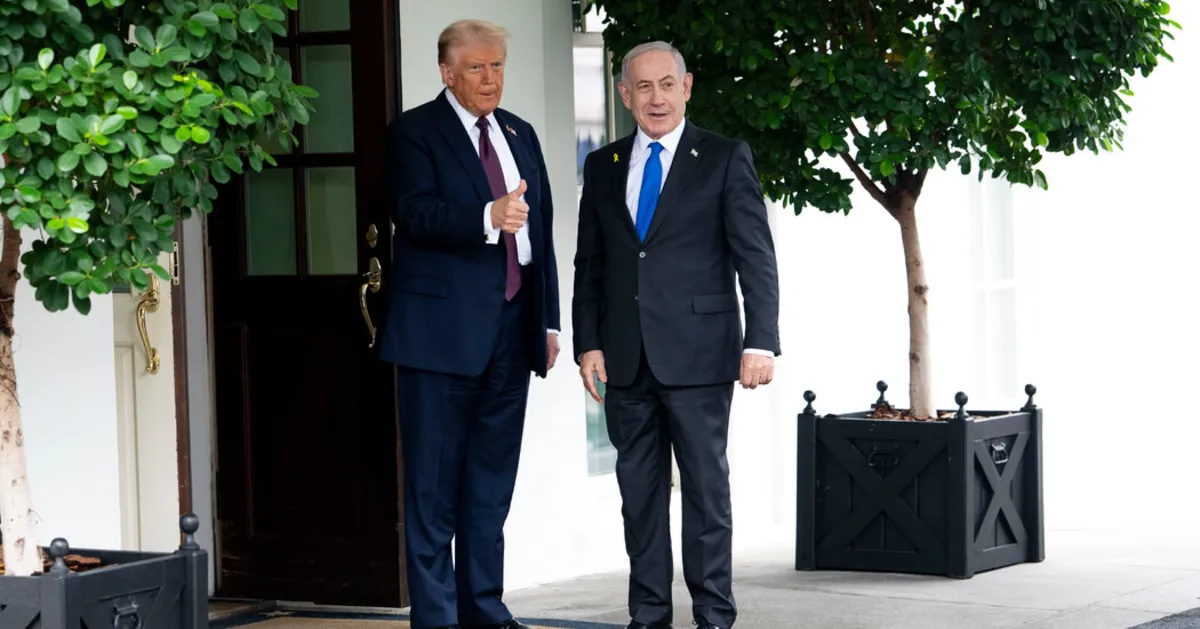
Former British Prime Minister Tony Blair has been actively seeking support for an ambitious plan aimed at establishing a Gaza International Transitional Authority. This proposed administration, mandated by the United Nations, would incorporate a multinational security force designed to stabilize the war-torn enclave of Gaza. With his recent emergence as a potential leader of this authority, Blair's involvement underscores the ongoing complexities of Middle Eastern diplomacy.
The Middle East has been a recurring theme throughout Blair's post-premiership career. He served as the envoy for the Quartet—comprising the United States, the United Nations, the European Union, and Russia—for eight years, attempting to broker peace between Israel and the Palestinians with minimal success. His appointment in 2007 was controversial, primarily due to his support for President George W. Bush's military actions in Iraq and his close ties to Israel, which fostered skepticism among many Palestinians.
Despite these challenges, Blair has maintained relationships with key Arab leaders, including those from Saudi Arabia and the United Arab Emirates, through his nonprofit organization, the Tony Blair Institute for Global Change. In a 2024 interview, he defended his connections to Saudi Crown Prince Mohammed bin Salman, acknowledging the complexities of engagement while emphasizing the positive implications for regional security and stability.
The Palestinian Authority (PA), established in 1994 following the Oslo Accords, administers parts of the Israeli-occupied West Bank and positions itself as the legitimate government of a potential future Palestinian state. However, its relationship with Israel has been tumultuous, especially under the leadership of Mahmoud Abbas, the PA's president since 2005. Abbas's administration has faced accusations of corruption and authoritarianism, with growing public discontent leading to calls for his resignation.
In his recent address to the U.N. General Assembly, Abbas accused Israel of committing "war crimes" in Gaza, highlighting the ongoing tensions between the two entities.
This month has seen a significant shift in international support for Palestinian statehood, with countries like France, Britain, and Canada officially recognizing it. This move, while largely symbolic, has further isolated Israel on the global stage, with both Israel and its allies in the U.S. condemning the recognition as a reward for Hamas, the militant group controlling Gaza.
As the conflict in Gaza continues, the path forward remains fraught with challenges. Abbas has expressed willingness for the PA to take responsibility for Gaza, asserting that Hamas would not be involved in future governance. However, proposals for a transitional authority call for substantial reforms within the PA to address corruption and improve governance.
Additionally, the proposed New York Declaration supports the idea of a transitional committee under the PA's umbrella, with elections to be held within a year post-cease-fire. Yet, Hamas has rejected Abbas's assertions about its exclusion from governance and insists on its right to self-determination.
The recent U.N. General Assembly sessions have been dominated by discussions about the Gaza conflict and the future of the territory. Notably, U.S. envoy Steve Witkoff outlined a peace plan that includes provisions for Hamas to return hostages and participate in peaceful negotiations with Israel. The plan also emphasizes the importance of engaging with Qatar, a key player in mediating the conflict.
Among the various proposals, Blair's plan for a Gaza International Transitional Authority stands out, envisioning a governance structure supported by international security forces. This initiative aims to address Palestinian concerns about displacement while promoting stability in the region. Meanwhile, the French-Saudi initiative, which garnered support from numerous countries, calls for Israel to withdraw from Gaza and for Hamas to relinquish control.
As discussions evolve, the international community remains watchful, hoping for a resolution that fosters peace and security for the people of Gaza.